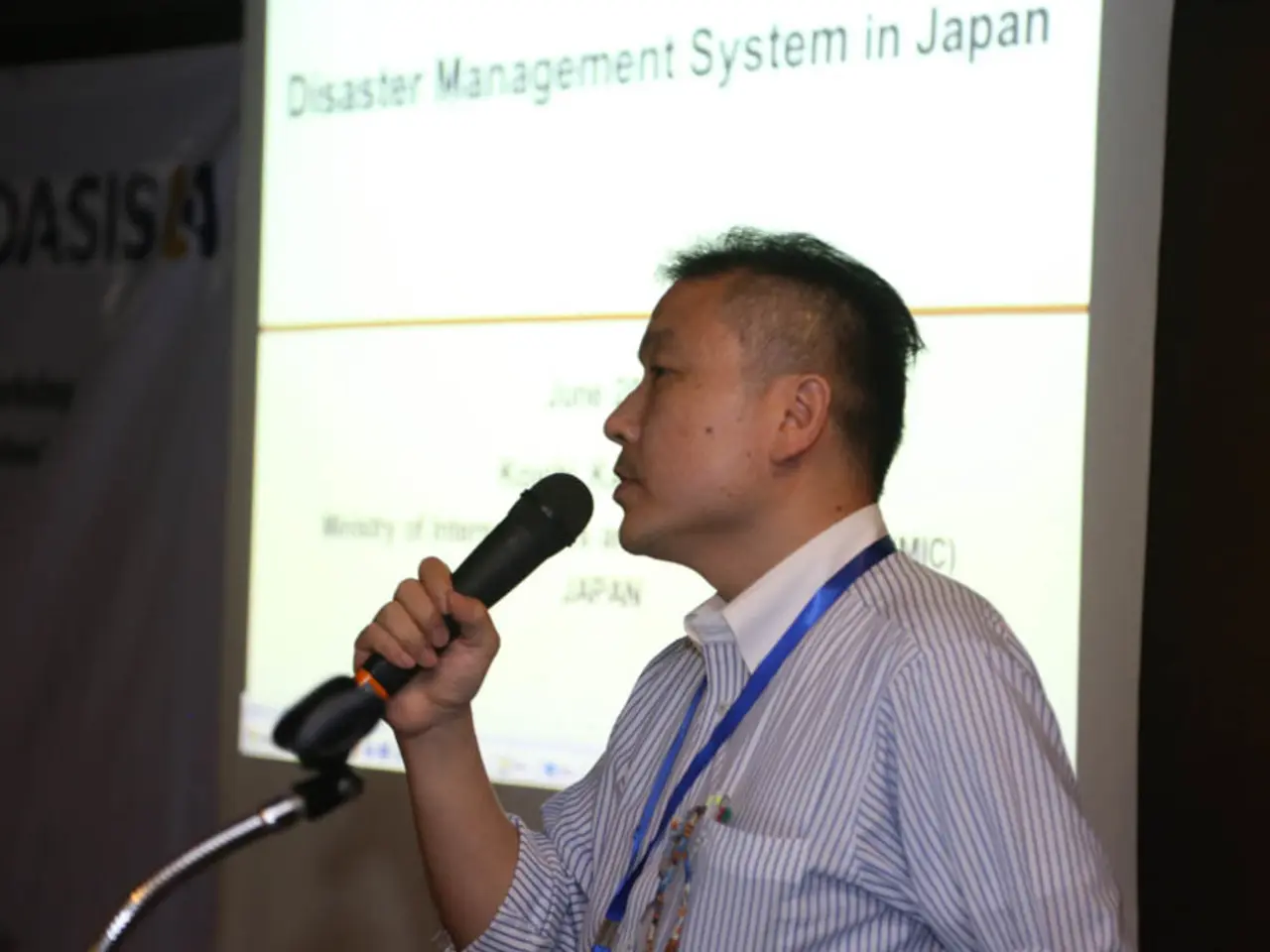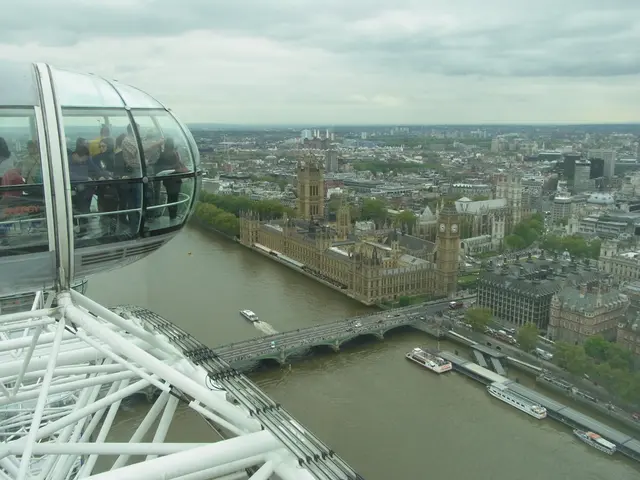Strategies for Managing Mental Health Amidst Natural Calamities
Updated on October 2, 2024
As the world continues to grapple with the aftermath of natural disasters, it's essential to address not only the physical destruction but also the mental health impact on survivors, their loved ones, and bystanders. Here's a guide to effective strategies for promoting resilience and recovery.
Firstly, immediate psychological support and mindfulness-based interventions are crucial. Intensive forest therapy programs, which incorporate mindful sensory engagement, breath awareness, relaxation techniques, and group physical activities in natural settings, have shown promise in regulating trauma-related heightened arousal and improving psychological well-being for disaster-affected individuals [1]. Psychological First Aid, administered by trained non-specialists and responders, is also recommended in the immediate aftermath to reduce distress, promote safety, and provide practical assistance [3].
Secondly, skills development for recovery is vital. Skills for Psychological Recovery (SPR) focus on improving social support, adaptive thinking, problem-solving, managing distress linked to disaster reminders, and increasing participation in positive activities. SPR is designed for those needing more than brief intervention but not necessarily full clinical treatment [3].
Thirdly, self-care and maintaining physical health are crucial for protecting mental health during and after disaster events. Taking breaks from distressing media coverage, engaging in activities that bring enjoyment, maintaining healthy eating, exercising, ensuring adequate sleep, and avoiding substance use are all vital [2].
Fourthly, connection and support networks play a critical role in long-term recovery. Talking with trusted friends or family about feelings and concerns fosters emotional processing, while maintaining social connections is emphasized as essential [2][4].
Fifthly, accessing professional help when needed is important. Many areas offer mobile crisis lines, anonymous online screening, and no-cost platforms for mental health support. Continued mental health support does not end when the immediate disaster passes [2][4].
Sixthly, long-term resources and community support are vital for sustained mental health recovery. National and local organizations, such as SAMHSA, NAMI, and CDC mental health resources, provide ongoing tools, support groups, and guidance to promote resilience and sustained mental health recovery [4].
In addition, Crisis Text Line (text 741741 from anywhere in the U.S. to text with a trained crisis counselor) and the National Alliance on Mental Illness HelpLine (1-800-950-6264 or [email protected]) are resources for reaching someone with training in crisis, trauma, or grief counseling. For those who feel overwhelmed, Lifeline Crisis Chat is another resource.
The stress of fighting for survival can make people more vulnerable to developing mental health conditions such as depression and PTSD. Donating money to organizations like the American Red Cross or The Salvation Army is an efficient way to support victims of natural disasters. If there is room in your home, offering a place for loved ones to recuperate can be appreciated. Before sending supplies, contact local organizations to ensure they can use them effectively.
For people with loved ones affected by the disaster, listening to their stories and asking how to support them is beneficial. News organizations share hundreds of photos and videos showing the extent of destruction caused by natural disasters, but constant news coverage can prevent people from going about their day normally. For survivors of a disaster, it is recommended to contact a mental health professional within 24 to 72 hours of a traumatic experience. Reports on natural disasters can be triggering for people who survived previous tragedies.
The website aims to provide up-to-date, valuable, and objective information on mental health topics to help readers make informed decisions. The impact on mental health is often difficult to see and quantify after natural disasters, but victims of natural disasters often experience trauma and grief that persists long after they have found a new home. Effective mental health strategies for survivors, loved ones, and bystanders affected by natural disasters focus on immediate relief, ongoing support, and skill-building to promote resilience and recovery.
[1] Irvine, J. M., & Stewart, I. (2014). A systematic review of the effects of forest therapy on mental health. Journal of Environmental Psychology, 38, 57-65. [2] National Center for PTSD. (2020). Helping Yourself After a Disaster. Retrieved from https://www.ptsd.va.gov/public/disaster/helping-yourself-after-disaster.asp [3] National Center for PTSD. (2020). Psychological First Aid. Retrieved from https://www.ptsd.va.gov/professional/treat/psychological-first-aid/index.asp [4] Substance Abuse and Mental Health Services Administration (SAMHSA). (2019). Disaster Technical Assistance Center (DTAC). Retrieved from https://www.samhsa.gov/disaster-preparedness/disaster-technical-assistance-center-dtac
- Online therapy platforms, such as mobile crisis lines and anonymous screening services, provide crucial support for those seeking professional help for anxiety, depression, and other mental health issues following natural disasters.
- The integration of mental health strategies into health-and-wellness routines, including mindfulness, self-care, and social support networks, is essential for maintaining mental health during and after disaster events, as demonstrated in mindful therapies like Intensive forest therapy programs.
- In the aftermath of natural disasters, promoting science-based practices, like Skills for Psychological Recovery (SPR) and Psychological First Aid (PFA), can help survivors regain a sense of control, cope with stress, and improve their overall mental wellness.




